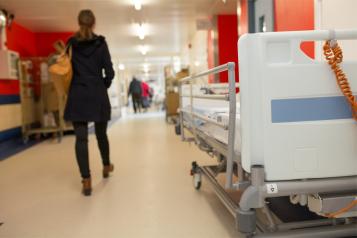Royal Free Hospital to lose maternity unit

North Central London Integrated Care Board and NHS England pointed to declining local birth rates as the main reason for the closure.
Although there are no immediate changes and all maternity services in the North Central London area currently remain open, one existing unit, at the Royal Free Hospital, will eventually be subject to closure.
Four maternity units, at University College London Hospital (UCLH), Barnet Hospital, North Middlesex University Hospital and Whittington Hospital, will continue to provide care. Births will eventually not take place at the Royal Free Hospital. The birthing suites at Edgware Birth Centre are also due to close and expanded antenatal and postnatal care is to be provided at the site.
Pregnancy, maternity and birth: Experiences of care in Haringey’s seldom heard communities
We published research in April 2024, showing that people wanted to see improvements in maternity care, particularly on communication and staffing levels.
We asked diverse maternity service-users about their experiences, including hearing from those who are seldom heard, via a survey, interviews, and focus groups. We asked for feedback on the themes of ‘Communication’, ‘Choice’ and ‘Improvement'.
Communication
We found a number of issues around communication. Contacting a midwife was not always easy, and only half reported having a named midwife. People who spoke English as a second language were less likely to have been provided with information about pregnancy or birth.
Choice
The NHS’s understanding of people’s cultural needs was not always consistent. Nearly a third of survey respondents did not ‘always’ feel able to raise concerns. Problems were attributed to the pressure of understaffing.
Improvements
Service users wanted to see improvements in these areas:
- More nurses
- One midwife throughout pregnancy and birth
- More appointments for post-natal care
- More GP face-to-face appointments
Healthwatch Haringey recommendations
Our recommendations included:
- Address staffing levels: Staffing levels were a sometimes hidden, sometimes explicit cause of problems with maternity care, and an overarching concern. Respondents who expressed difficulty in contacting a midwife or the maternity department, or not having a named midwife, were likely experiencing the impact of low numbers of midwives and nurses in the hospital maternity department. When giving birth people felt they were left ‘alone’ or without enough nurses to help.
- Make it easier for patients to raise their concerns and ask questions: Maternity and birth do carry a certain amount of risk and are highly significant life events. It is vital that people are able to ask all the questions they need, to understand what is happening, and raise concerns about their own or their baby’s health. But nearly a third of survey respondents did not ‘always’ feel able to raise questions or concerns.


